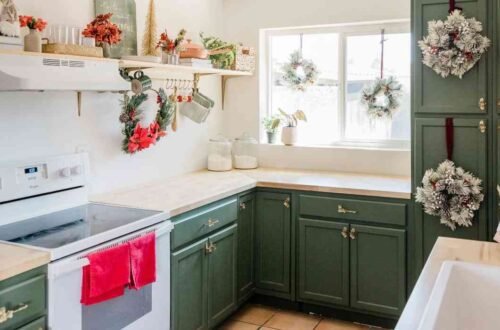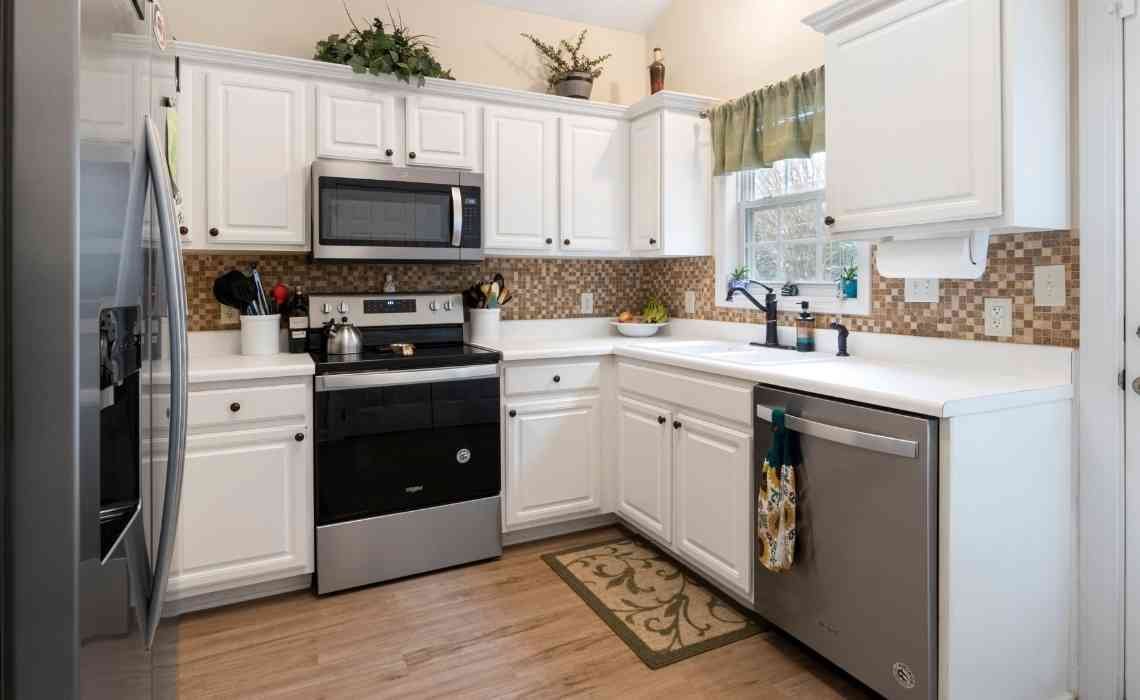
What is the Ultimate Golden Rule for Kitchen Layout Design?
Designing a kitchen can be exciting, but also a little overwhelming. With so many styles, colors, and layouts to choose from, it’s easy to get lost. But don’t worry—there’s a simple golden rule for kitchen layout design that makes everything easier. It’s called the kitchen work triangle, and it’s the key to designing a kitchen that is both beautiful and super functional.
In this blog post, we’ll explain what the golden rule for kitchen layout design is, why it matters, and how you can apply it when designing your kitchen. We’ll break it down in simple terms, so even a 10-year-old can understand and maybe even help design a kitchen one day!
What is the Golden Rule for Kitchen Layout Design?
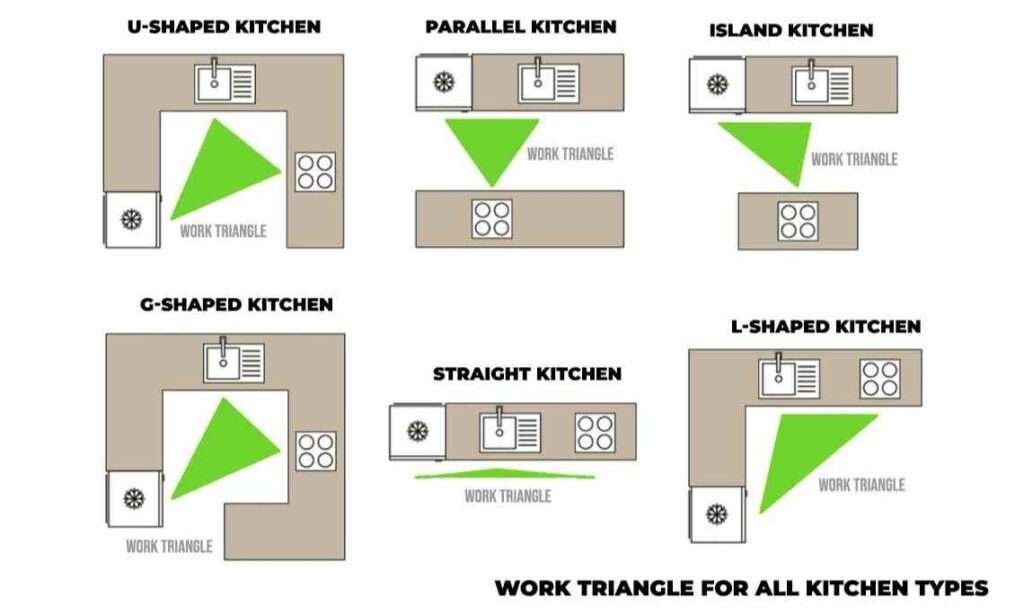
The golden rule is based on the work triangle. This rule connects the three most used areas in the kitchen: the sink, the stove, and the refrigerator. Imagine drawing a triangle between these three spots. That triangle should be easy to move around in, not too small and not too big.
This work triangle helps make cooking faster, easier, and safer. If the triangle is designed well, you won’t waste steps moving around, and you won’t bump into things. It keeps your kitchen running like a well-oiled machine.
Why These Three Spots Matter the Most
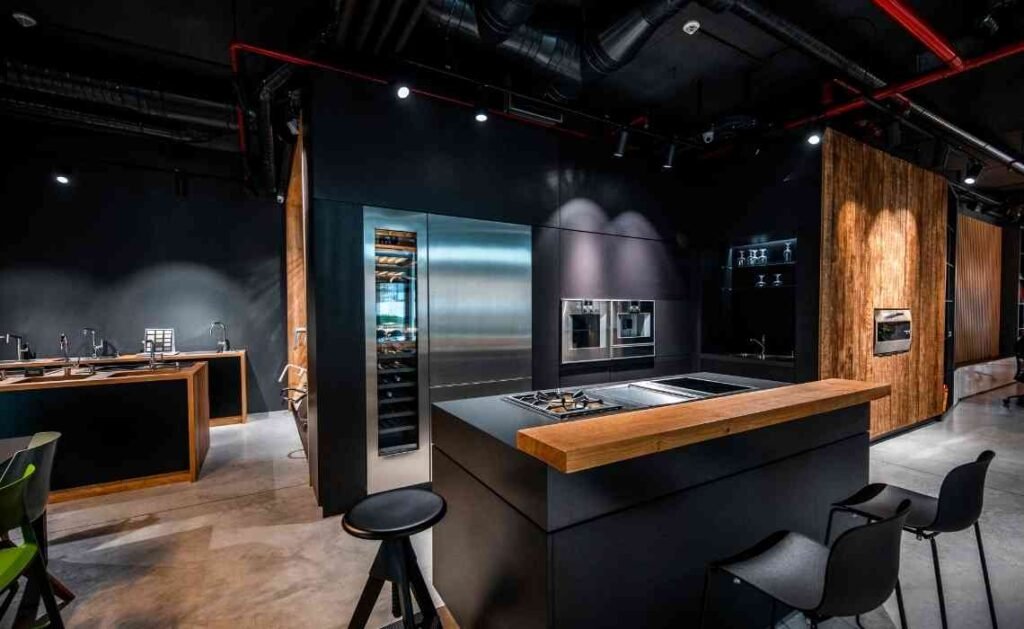
Let’s talk about why the sink, stove, and refrigerator are so important.
- Sink: This is where you wash fruits, veggies, hands, and dishes. You use it a lot.
- Stove or cooktop: This is where all the cooking happens. It gets hot, so it needs space around it to keep you safe.
- Refrigerator: This holds all your food. You go back and forth to it often while cooking.
These are the most used spots in any kitchen. If they are too far apart or placed badly, you’ll waste energy and time. If they are too close, it might feel cramped and unsafe.
How Big Should the Work Triangle Be?
There’s no one perfect size, but designers usually say:
- Each side of the triangle should be between 4 and 9 feet.
- The total distance of the triangle should be between 13 and 26 feet.
This gives you enough room to move without feeling crowded, but also keeps everything close enough to be convenient. If one side is too long, you’ll get tired going back and forth. If it’s too short, you’ll feel cramped.
Avoiding Obstacles in the Triangle
Nothing should block your path inside the triangle. That means no big islands, tables, or trash bins in the way. The whole idea is to move smoothly between the sink, stove, and fridge.
If you have to walk around something to get from the sink to the stove, it breaks the rule. Keep the triangle clear, and your kitchen will work better.
Does This Rule Work for Every Kitchen?
Yes, the golden rule can work in almost any kitchen, but you need to adjust it based on the kitchen layout. There are a few common kitchen layouts, like:
- L-shaped kitchen
- U-shaped kitchen
- Parallel kitchen
- One-wall kitchen
- Island kitchen
Let’s break each one down and see how the triangle works in each.
1. L-Shaped Kitchen
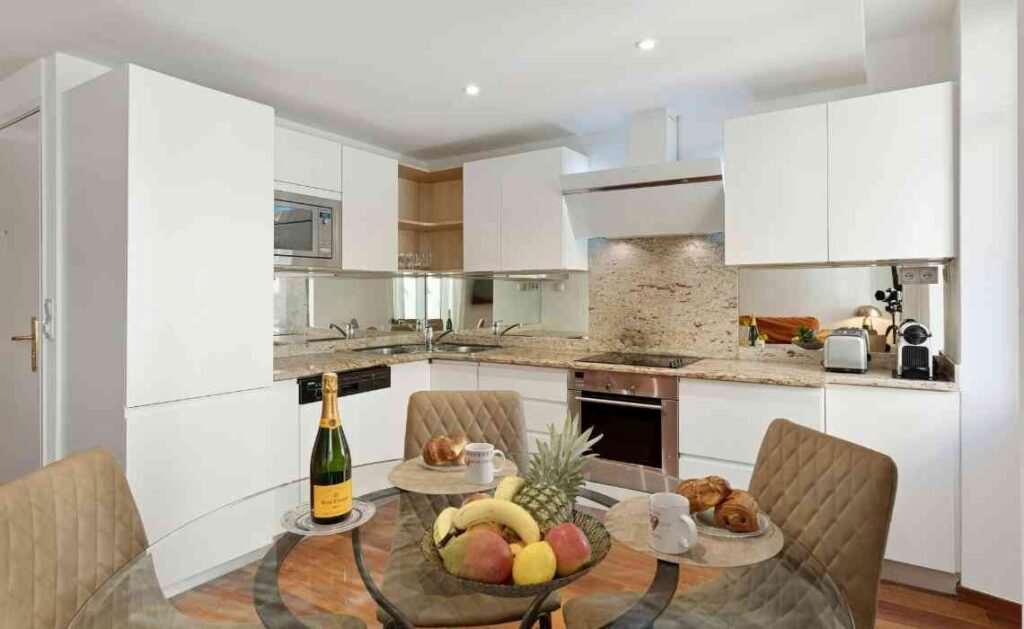
This layout uses two walls that meet to form an L. It’s great for small to medium-sized kitchens.
You can easily place the sink on one wall, the stove on the other, and the fridge nearby. This naturally forms a triangle. It’s great because it keeps everything close but not too tight.
2. U-Shaped Kitchen
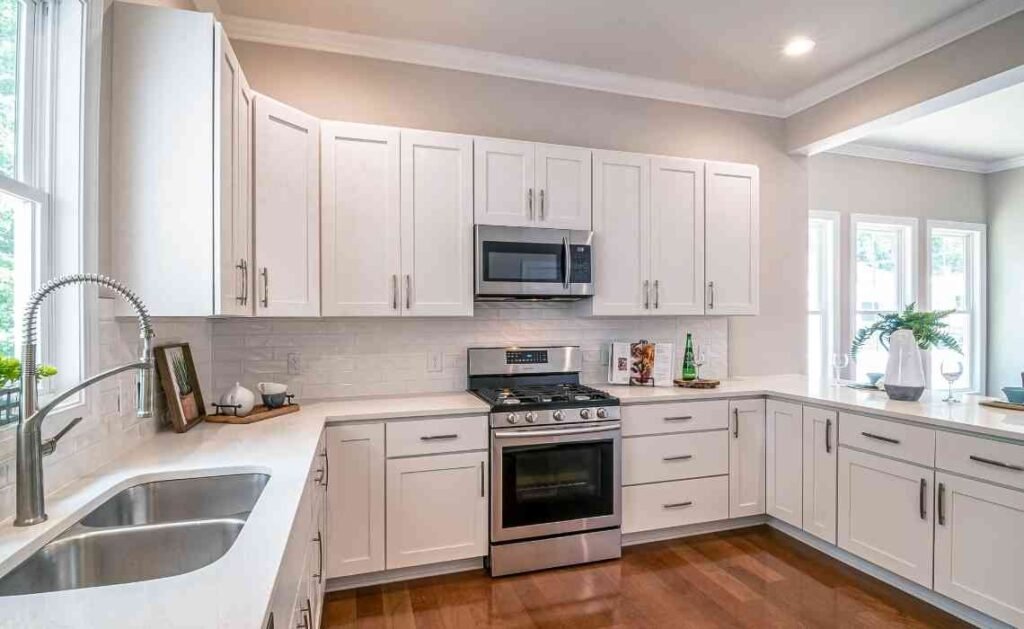
This layout uses three walls. It offers lots of storage and counter space.
You can place the sink in the middle, with the stove on one side and the fridge on the other. This setup makes a perfect triangle. It’s one of the best layouts for following the golden rule.
3. Parallel Kitchen
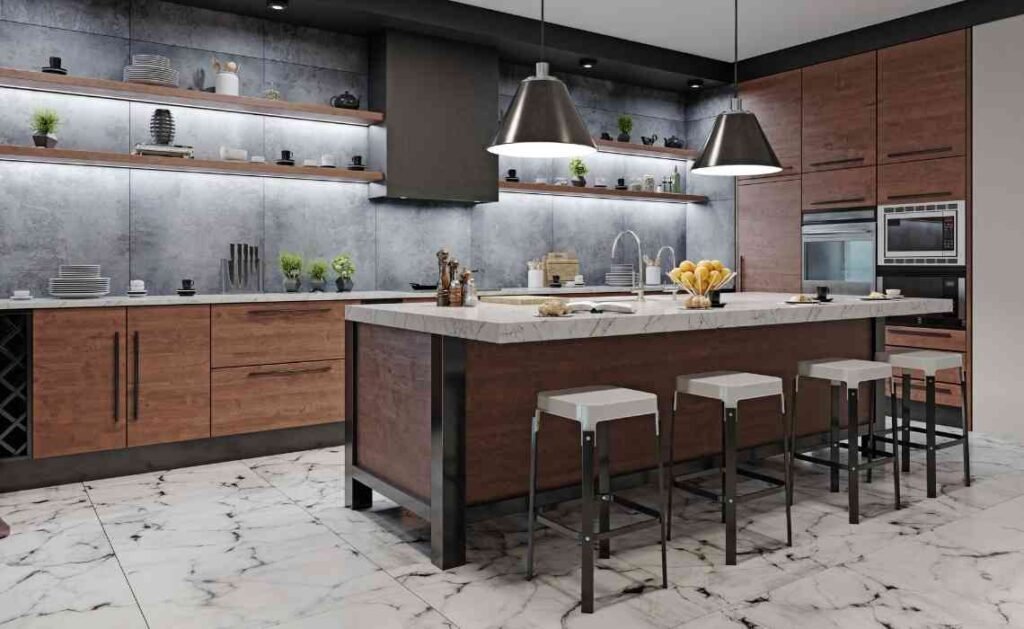
A parallel kitchen is like a hallway with counters on both sides. It’s common in apartments and smaller homes.
Here, the triangle can still work, but you need to be careful. Place the sink and stove on one side, and the fridge on the other. Make sure there’s enough room to move between them.
4. One-Wall Kitchen
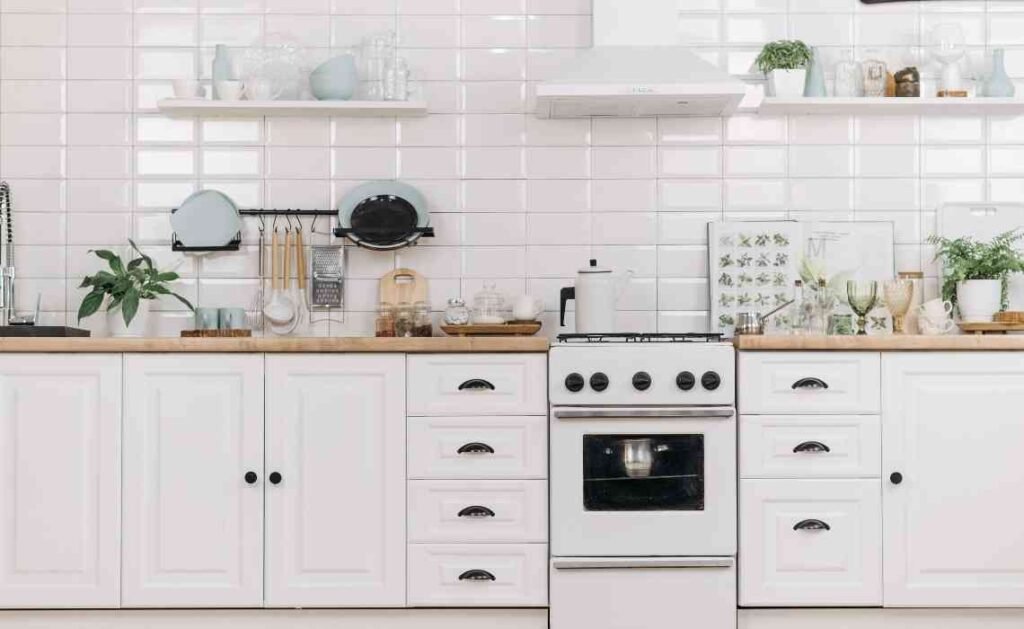
This layout puts everything along one wall. It’s simple but a little tricky for the triangle rule.
You can’t really make a triangle here, but you can still place the sink between the stove and fridge. That way, your movements are still efficient.
5. Island Kitchen
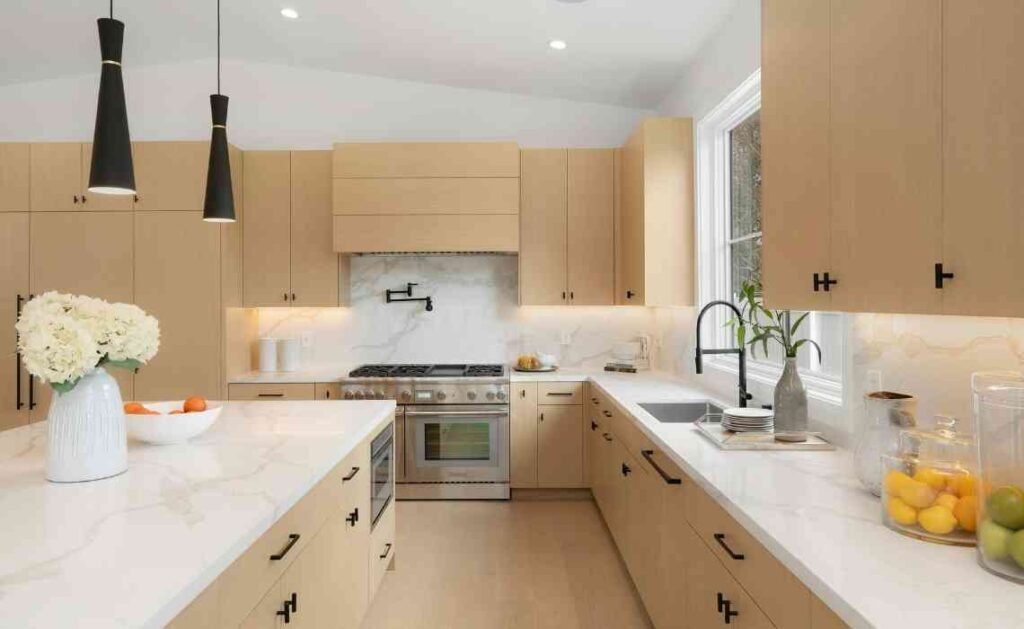
If you have space for an island, great! You can use it to improve your triangle.
For example, you can put the sink on the island, the stove behind it, and the fridge to the side. This makes the triangle even more balanced. Just make sure the island doesn’t block your path.
Bonus Tip: Zones Instead of a Triangle?
In modern kitchens, some people use the zone system. This means you divide your kitchen into zones like:
- Prep zone
- Cooking zone
- Cleaning zone
- Storage zone
Even if you use zones, the golden triangle still helps. You just make sure each zone fits well inside or around the triangle. It’s like building your zones inside the triangle’s shape.
Keep These Other Design Tips in Mind
The triangle is golden, but other rules also matter. Here are a few extra tips that make a big difference:
1. Think About Traffic
Don’t let your kitchen become a hallway. If people are walking through the kitchen all the time, it can get dangerous, especially when you’re cooking. Keep walkways outside the triangle whenever possible.
2. Watch Out for Door Swings
Make sure appliance doors like the fridge, oven, and dishwasher don’t bump into each other or block your path. You don’t want to open the fridge and block access to the sink. Plan where doors swing open.
3. Use Good Lighting
Lighting matters. Make sure the sink, stove, and countertop areas have good lighting. If you can’t see well, you could hurt yourself. Use a mix of ceiling lights and lights under cabinets.
4. Storage Close to Where You Use It
Put pots and pans near the stove. Put plates near the dishwasher. Keep knives and cutting boards close to where you chop. This saves time and steps.
5. Leave Enough Counter Space
Have counter space on both sides of the stove if possible. This gives you room to prepare and place hot pans. Also, place counter space next to the fridge for unloading groceries.
Mistakes to Avoid
Some kitchens look great in pictures but don’t work well when you start cooking. Here are some mistakes to avoid:
- Placing the stove next to a wall with no space for pans
- Putting the sink in the corner where two cabinets meet
- Making the fridge far from the prep area
- Blocking the triangle with a table or island
- Forgetting about space for trash or recycling
These mistakes can break the triangle or make cooking feel frustrating. Always think about how you move and cook before choosing a layout.
Design with Comfort and Function in Mind
The golden rule for kitchen layout design isn’t about fancy tools or expensive cabinets. It’s about making sure your kitchen helps you move easily and safely between the sink, stove, and refrigerator.
When you use the work triangle, you create a kitchen that feels just right. You save steps, avoid accidents, and enjoy cooking a lot more. Even if you have a small kitchen, you can still follow this rule and get big results.
Remember: the best kitchen is the one that works for you. And the golden rule gives you a simple way to make it happen.



